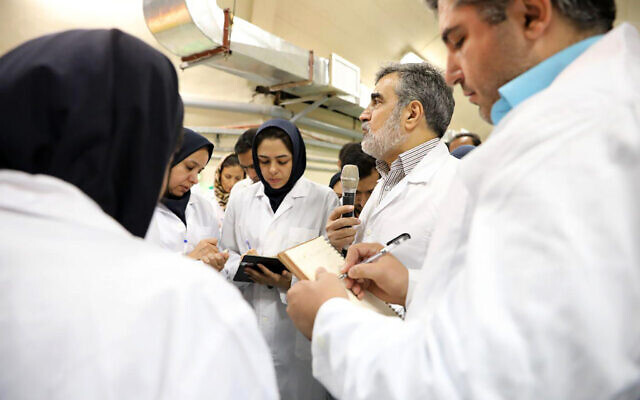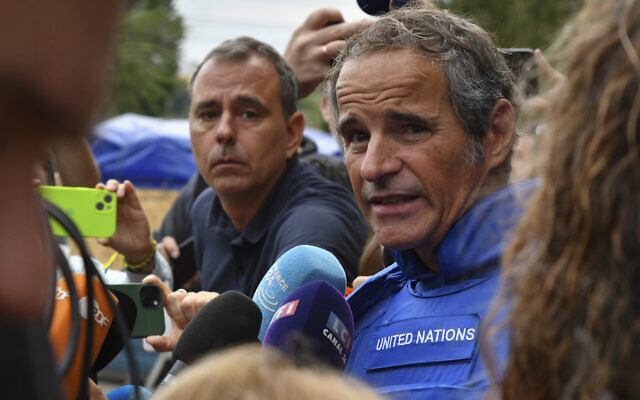VIENNA, Austria – The UN nuclear watchdog said Wednesday that Iran substantially modified an interconnection between two centrifuge clusters enriching uranium up to 60 percent at its Fordow Fuel Enrichment Plant (FFEP) without declaring it to the agency. did.
During an unannounced inspection at the Fordo plant on 21 January, the International Atomic Energy Agency found that “two IR-6 centrifuge cascades … were interconnected in a manner that was significantly different from the mode of operation declared by Iran to the agency”. “, according to a confidential report seen by AFP.
Since the end of last year, two centrifuge cascades have been used to enrich uranium up to 60 percent, the member states added in the report.
After being inspected by the IAEA at Fordo, Iran “subsequently informed the agency that it had switched to this mode of operation on 16 January.”
The agency did not specify what kind of changes were made to the interconnections between the centrifuge cascades.
Behrouz Kamalvandi, a spokesman for Iran’s Atomic Energy Organization, told state media late Wednesday that the IAEA had mistakenly flagged the interconnection and that inspectors had revised their findings after being informed of the inspection. stating that the head of the IAEA, Rafael Grossi, had based his report on outdated information. ,

In this photo released by the Atomic Energy Organization of Iran, a spokesman for the center’s organization Behrouz Kamalvandi, briefs the media while visiting the Fordo nuclear site near Qom, south of Tehran, Iran, November 9, 2019 (AP) Via Atomic Energy Organization of Iran) )
Grossi expressed concern that Iran “implemented substantial changes to the FFEP’s design information regarding the production of high-enriched uranium without prior notification to the agency”.
“This is inconsistent with Iran’s obligations under its safeguards agreement and undermines the agency’s ability to adjust safeguards for the FFEP and implement effective safeguards at the facility,” he said in a statement.
Last week, Grossi told lawmakers in the European Parliament that Iran “has accumulated enough nuclear material for several nuclear weapons – not even one at this point.”

International Atomic Energy Agency (IAEA) Director General Rafael Mariano Grossi speaks to the media as an IAEA mission prepares to visit the Zaporizhzhya Nuclear Power Plant in Zaporizhzhya, Ukraine, Sept. 1, 2022. (Andriy Andriyenko/AP)
Speaking about Iran’s recent nuclear activities, including enriching uranium toward levels needed for nuclear weapons — beyond the limits of the landmark 2015 accord that curbed Iran’s nuclear capabilities — Grossi said Iran was “definitely not good.”
The agreement, known as the JCPOA, fell apart in 2018 after the US withdrew under former President Donald Trump, and talks to revive it have stalled since then.
